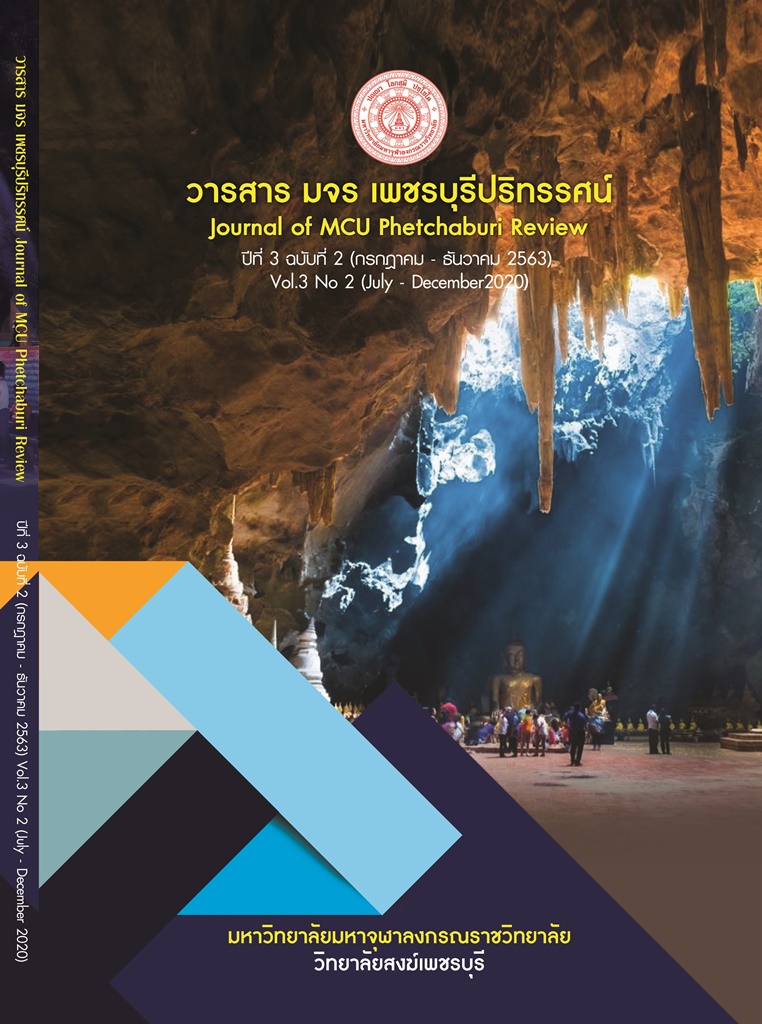BUDDHA-THE ENLIGHTENED PERSON WHO HAD LEFT SUFFERING STATE: A COMPARATIVE ANALYSIS ON CONTEMPORARY STUDY IN POLITICS AND GOVERNING DURING THE BUDDHA ERA AND THE REFUSAL OF POWER TO GOVERN THE STATE OF CROWN PRINCE SIDTHADTHA
Main Article Content
Abstract
The contemporary political situation in 200 years before and after the Buddhist Era in which Prince Sidthadtha was born, at that time as such Egypt/Greek/Roman/Athens/China and Persia, all of them were in the state of wars, fighting for power to govern. Even though they had independent but small states were subjected under great power states and such situation had built them as a governor of a small state unsafe in lives and properties. Anyhow there were about three reasons that had made the crown prince Sidthadtha to deny for power of state’s government; 1) seeking the goal of like, since he found the facts that people birth, aging, sick and death. Why people still seeking for birth, aging, sick and death. He thought that layman was too narrow while clergyman was emptied and comfortable to relieve from greed. It was not easy for layman to behave brahmacharya. 2) The four deities presented Prince Sidthadtha had respectively seen the four deities; the old aged, sick people, death persons and monks therefore, he concluded that was the world suffering and then he decided to go for monkhood which he realized this was a way to be freed from suffering. And 3) the political conflicts from war between Kabilapatsadu and Devedaha towns who were his relatives that they were fighting for taking water. And both relative consisted to reject the disputed case had driven Sidthadtha went for monkhood.
Article Details
References
กรุณา-เรืองอุไร กุศลาสัย. (2554). ภารตวิทยา. กรุงเทพมหานคร: ศยาม.
กาญจนี ละอองศรี. (2559). อินเดียมหัศจรรย์. สมุทรปราการ: มูลนิธิโตโยต้าประเทศไทย.
จำนง ทองประเสริฐ. (2557). แผนการกู้อิสรภาพของเจ้าชายสิทธัตถะ. กรุงเทพมหานคร: สหธรรมิก.
บัญชา พงษ์พานิช. (2557). สังเขปประวัติชมพูทวีป - ภารต - อินเดีย เพื่อการตามรอยพระพุทธศาสนาและศรัทธาของผู้คน. กรุงเทพมหานคร: สำนักงานกองทุนสนับสนุนการสร้างเสริมสุขภาพ (สสส.).
ปรีชา ช้างขวัญยืน. (2540). ทรรศนะทางการเมืองของพระพุทธศาสนา. กรุงเทพมหานคร: จุฬาลงกรณ์มหาวิทยาลัย.
พระครูกัลยาณสิทธิวัฒน์ (สมาน พรหมอยู่/กลฺยาณธมฺโม). (2547). พุทธประวัติตามแนวปฐมสมโพธิ. กรุงเทพมหานคร: โรงพิมพ์มหาจุฬาลงกรณาชวิทยาลัย.
พระครูโสภณปริยัติสุธี. (2552). รัฐศาสตร์ในพระไตรปิฎก. กรุงเทพมหานคร: โรงพิมพ์มหาจุฬาลงกรณราชวิทยาลัย.
มหาวิทยาลัยมหาจุฬาลงกรณราชวิทยาลัย. (2539). พระไตรปิฎกภาษาไทย ฉบับมหาจุฬาลงกรณราชวิทยาลัย. กรุงเทพมหานคร: โรงพิมพ์มหาจุฬาลงกรณราชวิทยาลัย.
รงรอง วงศ์โอบอ้อม. (2560). ประวัติศาสตร์จีน. กรุงเทพมหานคร: บริษัท ธรรมสาร จำกัด.
รงรอง วงศ์โอบอ้อม. (2561). ประวัติศาสตร์อินเดีย. กรุงเทพมหานคร: บริษัท พี.เอ.ลีฟวิ่ง จำกัด.
ส. พลายน้อย. (2558). ตามรอยพุทธประวัติ. นนทบุรี: สำนักพิมพ์สารคดี.
สุริยา รัตนกุล. (2536). อารรยธรรมตะวันออก อารยธรรมอินเดีย. นนทบุรี: บริษัท เพชรรุ่งการพิมพ์ จำกัด.
อนันตชัย จินดาวัฒน์. (2556). ประวัติศาสตร์ยุโรป. กรุงเทพมหานคร: ยิปซี กรุ๊ป.
ฮาร์มัน คริส. (2557). ประวัติศาสตร์โลกฉบับประชาชน : จากยุคหินถึงสหัสวรรษใหม่. กรุงเทพมหานคร: โครงการจัดพิมพ์คบไฟ.
Davids, T.W. Rhys. (1971). Buddhist India. Delhi: Delhi.
Tripathi, Rama Shankar. (1981). History of Ancient India. Delhi: Motital Banarsidass.


